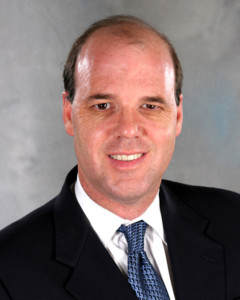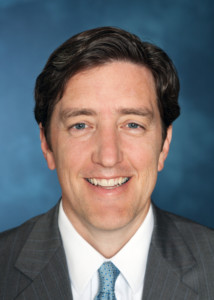Laws addressing public safety, contracting, housing, the environment and more took effect Jan. 1
By Scott Campbell & Joseph Byrne Best Best & Krieger LLP
The distinct challenges of 2020 dominated last year’s legislative session.
From expanding the standards by which peace officers are screened for biases to broadening prevailing wage payments to more workers on publicly funded projects and addressing California’s affordable housing deficit, California lawmakers passed a number bills last year that have an effect on how cities, counties and special districts operate and serve constituents.
In this annual legislation rundown, Best Best & Krieger LLP provides summaries of the most impactful bills of 2020 that public agencies need to be aware of in order to stay compliant with State law.
Brown Act: The State’s Sunshine Law Comes to Social Media
Routine interactions on social media platforms could put California officials at odds with the State’s Sunshine law. Assembly Bill 992, the first Brown Act amendment to address public officials’ social media use, lays out the communications a public official may engage in and those that are prohibited.
The law covers activity on Facebook, Instagram, Snapchat, Twitter, TikTok, Reddit, blogs and more.
BB&K explores the topic further in the previous article: Social Media Meets the Brown Act.
Environment: Transit Projects & PFAs in Firefighting Equipment
State lawmakers took steps to broaden environmental protections in an effort to spur green-infrastructure projects and eliminate contaminants from drinking water. They include:
- Senate Bill 288: The measure exempts certain environmentally friendly projects from the California Environmental Quality Act’s review requirements. This includes new transit stations and bus rapid transit lines, street improvements for biking and walking, bridge repairs, and the construction or maintenance of infrastructure for zero-emission vehicle charging stations.
- SB 1044: As of Jan. 1, 2022, the manufacturing, sale, distribution and use of class B firefighting foam PFAS chemicals are prohibited. Fines of $5,000 and $10,000 for each subsequent violation may be levied. There are exceptions for facilities using a fixed foam fire suppression system with a 110 percent containment system and at a terminal or oil refinery for certain uses.
Housing/Land Use: Alleviating the State’s Housing Crisis
In 2017, SB 35 established a streamlined ministerial approval process for multi-family housing projects in jurisdictions not meeting their state-mandated housing goals.
AB 168 adds new requirements to this process, including requiring developers submit a notice of intent (via a preliminary application) to local agencies before proceeding under SB 35. Upon receiving a preliminary application, local agencies are required to invite California Native American Tribes to help identify, protect, preserve and mitigate impacts to cultural resources. The law clarifies that this tribal consultation process is not subject to CEQA.
The State’s Planning and Zoning Law requires local jurisdictions to adopt a general plan and provide an annual report addressing various items. Now required for inclusion on the list is a city’s or county’s: compliance with tribal consultation (AB 168) and density-bonus applications and approvals (AB 2345).
Lawmakers also passed the following housing measures:
- AB 725: Local agencies will soon be required to include medium- to high-density housing for moderate and above moderate-income households in general plan regional housing elements. Agencies must identify the potential for these additional housing units starting January 2022.
- AB 831: Developers may modify an already approved project under SB 35’s streamlined process if the final building permit hasn’t been issued. Modifications must be consistent with the development standards that applied to the original application. AB 831 also limits a local agency’s discretion over the use of government property for public improvements needed for a streamlined project.
- AB 1030: The California Housing Accountability Act’s definition of “deemed complete” was revised to include the submission of a completed application if a developer has not submitted a preliminary application. This is not intended to limit a developer from seeking a density bonus pursuant to a local program offering additional density, when affordable housing is provided.
- AB 1561: Starting in 2024, the housing element of a city or county analyzing the constraints on the maintenance, improvement or development of housing must also address constraints on housing due, but not limited, to: sex, race, religion, national origin, disability, medical condition, marital status, sexual orientation, citizenship, primary language or immigration status.
- AB 2275: California law previously required cities and counties wanting to use an armory as a homeless shelter to ensure law enforcement would visit every night, before obtaining a license. This law removes this requirement. Now, prior to obtaining a license, cities and counties must notify local law enforcement and simply request that officers visit the armory every night.
- AB 3182: To remove existing barriers to affordable housing, AB 3182 limits the ability of residential common interest developments, as in condominium and community apartment projects and planned developments, to restrict rentals in their communities.
Public Contracting: A Skilled, Trained Workforce & Prevailing Wages
AB 2311: The law states that when the use of a skilled and trained workforce to complete a contract or project is required pursuant to state law, public entities are required to include a notice that the project is subject to this requirement in all bid documents and construction contracts. Failure to provide the workforce notice does not excuse the entity from the requirement. The bidder, contractor and other entities involved are also not excused from the obligation to use a skilled or trained workforce, as provided by law.
AB 2231: Generally, workers on publicly funded projects are paid prevailing wages under California law. Private development projects with a state of political subdivision subsidy that is de minimis (insignificant) in the context of the project are exempt. With the passage of AB 2231, a public subsidy is now considered de minimis if it is both less than $600,000 and under 2 percent of the total project costs. Public subsidies for single-family residential projects, however, are considered de minimis if they are less than 2 percent of the total project cost, regardless of the total public funding amount. The law takes effect July 1.
AB 2765: Accompanying AB 2311 to broaden the payment of prevailing wages to more workers, AB 2765 expands the definition of public works to include “the construction, alteration, demolition, installation or repair work done under private contract for a charter school project that utilizes proceeds of conduit revenue bonds.” Previously, such bonds were not considered a public subsidy for determining the application of public works laws. Prevailing wage rates are now extended to workers on these projects.
Public Safety: Police Reform & Expanded First Responder Classifications (Grimes)
State lawmakers introduced a wave of bills advancing reforms to improve policing practices after the May police killing of George Floyd in Minneapolis. Gov. Gavin Newsom signed new laws that prohibit law enforcement agencies from authorizing the use of carotid restraints and choke holds (AB 1196) and require independent investigations in officer-involved shootings resulting in death of an unarmed civilian. (AB 1506).
AB 846 addresses the issue of racial profiling from the onset of the hiring process. Under AB 846 law enforcement agencies are now required to evaluate prospective officers to identify any implicit and explicit biases against race, ethnicity, religion, gender and other attributes protected from discrimination.
The California Emergency Services Act grants the governor, California cities and counties the authorization to proclaim a state of emergency, under certain circumstances. Responding to the COVID-19 pandemic, AB 1945 broadened its classification of a “first responder,” defined as a state or local public agency employee who provides emergency response services, to include public safety dispatchers.
Scott H. Campbell, a partner and the practice group leader of Best Best & Krieger LLP’s Municipal Law practice group, concentrates his practice on municipal and public entity representation, construction management and litigation. Scott can be reached at scott.campbell@bbklaw.com.
Joseph P. Byrne, a Best Best & Krieger LLP partner, is the practice group leader of the firm’s Special Districts and Environmental Law & Natural Resources practice groups. He advises public- and private-sector clients on water law and government strategies. Contact Joe at joseph.byrne@bbklaw.com.







